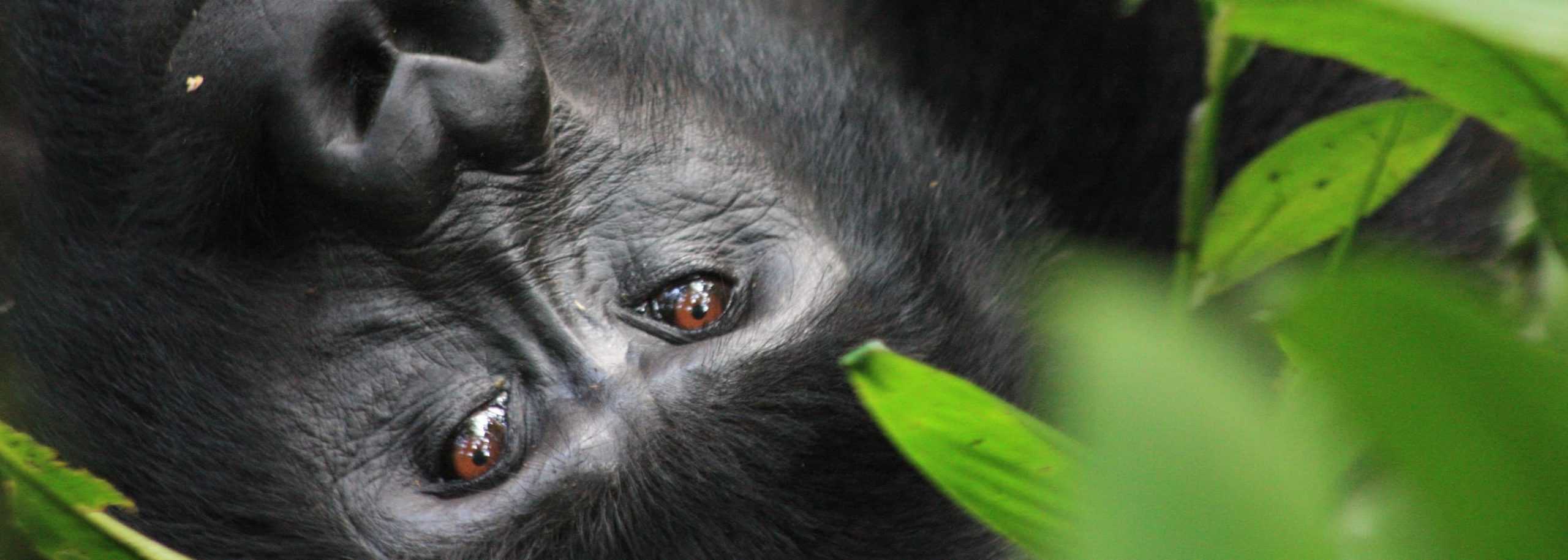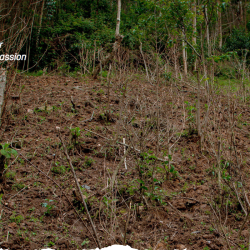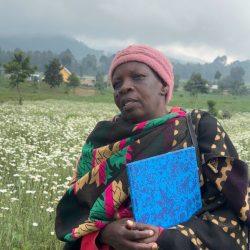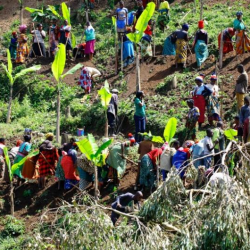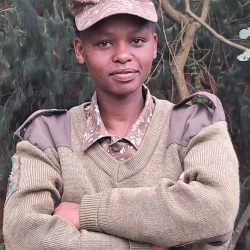Accumulative Savings and Credit Schemes Facilitate Household Development Around Mgahinga Gorilla National Park!
Blog | 7/08/24
Tucked away in her little home in Gishondori village, adjacent to Mgahinga Gorilla National Park, Imelda Nyiramutuzo, mother of three lived “comfortably” in poverty and lack, after all her standards of living were not any different from the rest of the community. In her two roomed house, Imelda barely had a mattress or utensils! “My children, husband and I ate our meals on a shared plate,” says Imelda.
When you speak of being poor and doing nothing about it, Imelda and her neighbors from the different villages around Mgahinga Gorilla National Park quickly relate! Being referred to as “abanyeshamba” which translates to “village paupers” was never an issue! “We embraced this name because for a fact, we lived in poverty and absolute backwardness. Very few homes were self-reliant, we would borrow right from beddings to utensils,” affirms Benedict Dusabe, a resident of Nzogera Village.
Fast forward, through IGCP’s several community livelihood interventions under the Sida-Leading the Change project in the area e.g. mindset transformational trainings, boosting Village Loans Associations’ loan portfolio and smart agriculture practices the community was enlightened, causing a complete mindset change and consequent livelihood improvement among the park adjacent community.
Christopher Ndayambaje, Chairman for Mgahinga Community Conservation Development Association affirms that the trainings were mind opening and an ice breaker. They touched every community member and got them up and working hard against their poverty situation.
“When IGCP trained us on mindset change and business management two years ago, everyone even the least expected persons in the community started working towards development,” Christopher says.
IGCP works with and through Community Based Organizations (CBOs), offering technical and financial support. IGCP has in the recent past supported about 20 Village Savings and Loans Associations/Accumulative Savings and Credit Associations under these CBOs in both Rwanda and Uganda. CBOs received funds ranging from 10M UGX (2740$) to 20M UGX (5480$) to either boost their loan portfolio or start up a savings and credit scheme with the overall aim of improving the lending capacity of the groups to their members.
Through Mgahinga Community Conservation Development Association 12 ASCAs from 12 villages adjacent to Mgahinga Gorilla National Park received UGX 20M (5480$).
The development journey started with weekly meetings for the members of these ASCAs and the resolution that each member should contribute UGX 2000 ($0.1) each sitting. On top of the weekly contributions, each member contributed UGX 5000 ($2) monthly to compliment the UGX 2000 weekly collections. Averagely a savings group – ASCA is composed of 30 members.
“The purpose of this weekly and monthly collection was specifically to address household needs like mattresses and kitchen utensils which most families lacked, and, to help farmers purchase some livestock,” says Geneva Ntabwoba, MCCDA Secretary.
And in about 6 months members had collected 7m UGX (1,870$) which they used to purchase over “90 mattresses, 70 food flasks, and about 30 sheep. These were distributed to over 160 households. Small as they may seem, these items have elevated lives!
“Getting a food flask has really simplified my burden as a mother. My children and husband can now eat clean and warm food. I am also able to spend more time at the farm without worrying about what my school going children will eat when they return home,” says Imelda Nyiramutuzo.
Emmanuel Sebazungu, a resident of Rukongi Village says, owning a mattress for the first time in my life was the most amazing thing. “I now sleep comfortably on my mattress, this is a dream come true,” says Sebazungu.
Emmanuel Mugisha, a resident of Cyana village on the other hand, is so grateful for the sheep that he received from the group, “My farming has improved now that I have free manure from the sheep. I also thank IGCP for giving us onion seedlings. Onion farming has greatly reduced human wildlife conflict because onions are non-palatable to the wildlife,” says Mugisha.
In addition to the weekly savings, most members have taken loans from the ASCAs in which they belong and used them to start up or diversify their income generating projects. This has led to increased individual and household incomes and consequent development in homes and the community.
According to Henry Mutabaazi IGCP Uganda Programme Advisor, these initiatives have greatly impacted the park-edge community. “The major objective we had was transforming park-edge livelihoods through different approaches and so far, this we have achieved,” says Mutabaazi.
Because of their ability to lend members funds at a low interest rate – 5% within a short period of time compared to the formal financial institutions that give loans with 17% to 30% interest rate, community members have learned to save money with their groups – for it is against those savings that one can borrow money in times of need.
Coupled with the benefits realized so far from the saving and loan scheme it is no wonder that this approach is doing so well and continues to facilitate livelihood improvement. Similar stories of change have been documented among other VSLAs/ASCAs in the other park edge communities that IGCP has supported.
